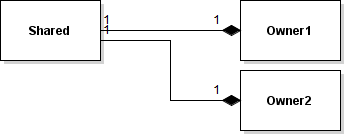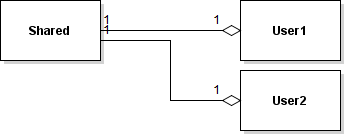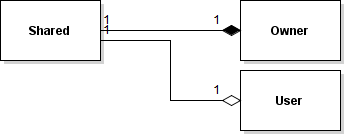Ik dacht eerst een beknopt overzicht te maken, maar waarom post ik niet gewoon de hele zooi?
Waarom blog ik dit? Omdat dit de randen van onze vrijheden raakt. Zijnde het medische geheim. Ik geloof niet dat het schenden van het beroepsgeheim van dokters ons welke terrorist dan ook zal opleveren. Toch gaan we dit moeten afgeven. Ik vraag me af of mensen die echt psychische problemen hebben hier mee gediend zullen zijn?
(lees de E-mail-boom van onder naar boven voor volledige context)
On Wed, 2016-09-07 at 15:04 +0000, FMF Kabinet Info (ACA) wrote:
> Geachte heer,
>
> Het gedeeld beroepsgeheim dat wij willen instellen is een uitzonderingsmaatregel
> op het bestaande beroepsgeheim. Hierdoor zal het mogelijk worden voor
> beroepsgroepen met geheimhoudingsplicht om binnen een bepaalde context
> “geheime informatie” te delen.
Worden in jullie voorstel de mensen in die beroepsgroepen opgeleid om de
juist om te gaan met de keuze deze geheime informatie te delen?
Welk zullen de criteria zijn?
> Het is uitdrukkelijk niet de bedoeling dat de artsen zomaar preventief toegang
> kunnen krijgen tot gerechtelijke informatie of tot de politiedatabanken.
En omgekeerd? Zal de politie preventief toegang kunnen krijgen tot
medische dossiers zonder duidelijke voorafgaande goedkeuring en opdracht
van een onderzoeksrechter (die proportionaliteit e.d. toetst)?
> Het is wél de bedoeling dat er (op structurele basis) een overleg kan plaatsvinden,
> ook tussen artsen, politie, parket en bestuurlijke overheden, over bijv.
> risicopatiënten, herhaaldelijke incidenten of hotspots en dat er op basis daarvan
> afspraken kunnen worden gemaakt aangaande beveiliging.
Tussen artsen wil dus zeggen dat deze geheime informatie gedeeld zal
worden met een relatief grote groepen mensen? M.a.w. zal ze vrij snel gelekt
worden. Want al die mensen hun systemen beveiligen is een onmogelijke
zaak. Dokters hun computersystemen worden al geviseerd door oa.
cybercriminelen en er is al sprake van dat deze gegevens via zwarte
markten internationaal verkocht worden. Zelfs op massale schaal.
Moesten jullie dit onbezonnen doen met computerbestanden die her en der
op allerlei netwerken en individuele dokters hun computers komen te
staan, ga je dus over een paar jaar mensen hebben die nooit meer werk
gaan kunnen vinden. Want het is vrijwel zeker dat die gegevens aan HR
bedrijven gaan verkocht worden.
Recent nog was er een Belgisch bedrijf dat medische dossiers voor een
Nederlandse firma beheert, gehacked. Daarbij waren tienduizenden geheime
dossiers buitgemaakt.
Hoe gaan jullie er voor zorgen dat dit niet gebeurt? Het budget voor
cyberbeveiliging is voorts bitter laag.
> Ik ben dus wel van mening dat we de wettelijke beperkingen moeten versoepelen,
Ja, maar wordt de controle er op strenger?
Alleen maar versoepelen zal, maar dit is slechts mijn mening, leiden tot
chaotisch misbruik.
> zodat het mogelijk wordt om absoluut noodzakelijke informatie met de
> juiste partners te delen, ook al is deze informatie verkregen in het
> kader van de vertrouwensrelatie van het beroep.
Met de juiste partners.
Zal er dan ook naast een comité I en P een comité M komen om de dokters
te controleren? Of zal het sterk onderbemande comité I dit doen?
> Dit moet niet alleen in geval van een accute noodsituatie kunnen,
> maar ook om weerkerende problemen of risico’s aan te pakken. De inschatting
> van de opportuniteit om deze informatie te delen binnen dat wettelijk
> kader blijft dan wel bij de houder van de informatie.
Dus niet bij een daarvoor opgeleide persoon, zoals een
onderzoeksrechter?
> Uw opmerkingen zijn overigens terecht: het criterium “mensen die geweld
> gebruik(t)en” zou veel te vaag zijn om een gedegen risicoanalyse te laten
> voeren.
Precies. Dus de inschatting om deze informatie te delen moet dus gemaakt
worden door iemand die hiervoor opgeleid is?
> En dit zou trouwens erg stigmatiserend werken en contra-productief ten
> aanzien van de vertrouwensrelatie tussen arts en patiënt en de bereidheid
> tot behandeling.
Dus we zijn het met elkaar eens dat enkel iemand die hiervoor opgeleid
wordt de afweging kan maken? M.a.w. een onderzoeksrechter.
Want die persoon kan deze afweging al maken, zolang hij – zij maar overleg
pleegt met de orde der geneesheren.
Misschien heb ik de wet inzake bijzondere inlichtingen niet goed
begrepen, natuurlijk …
Vriendelijke groet,
Philip
| From: |
FMF Kabinet Info (ACA) <info.kabinet@just.fgov.be> |
| To: |
philip@codeminded.be <philip@codeminded.be> |
| Subject: |
RE: Het gedeelde beroepsgeheim tussen artsen en politie |
| Date: |
Wed, 7 Sep 2016 15:04:15 +0000 (09/07/2016 05:04:15 PM) |
Geachte heer,
Het gedeeld beroepsgeheim dat wij willen instellen is een uitzonderingsmaatregel op het bestaande beroepsgeheim. Hierdoor zal het mogelijk worden voor beroepsgroepen met geheimhoudingsplicht om binnen een bepaalde context “geheime informatie” te delen.
Het is uitdrukkelijk niet de bedoeling dat de artsen zomaar preventief toegang kunnen krijgen tot gerechtelijke informatie of tot de politiedatabanken.
Het is wél de bedoeling dat er (op structurele basis) een overleg kan plaatsvinden, ook tussen artsen, politie, parket en bestuurlijke overheden, over bijv. risicopatiënten, herhaaldelijke incidenten of hotspots en dat er op basis daarvan afspraken kunnen worden gemaakt aangaande beveiliging.
Ik ben dus wel van mening dat we de wettelijke beperkingen moeten versoepelen, zodat het mogelijk wordt om absoluut noodzakelijke informatie met de juiste partners te delen, ook al is deze informatie verkregen in het kader van de vertrouwensrelatie van het beroep. Dit moet niet alleen in geval van een accute noodsituatie kunnen, maar ook om weerkerende problemen of risico’s aan te pakken. De inschatting van de opportuniteit om deze informatie te delen binnen dat wettelijk kader blijft dan wel bij de houder van de informatie.
Uw opmerkingen zijn overigens terecht: het criterium “mensen die geweld gebruik(t)en” zou veel te vaag zijn om een gedegen risicoanalyse te laten voeren.
En dit zou trouwens erg stigmatiserend werken en contra-productief ten aanzien van de vertrouwensrelatie tussen arts en patiënt en de bereidheid tot behandeling.
Vriendelijke groet,
Voor de Minister,
Trees Van Eykeren
Persoonlijk medewerkster Minister Geens
Kabinet Minister van Justitie| cabinet Ministre de la Justice Koen Geens
Waterloolaan 115
1000 Brussel
Tel +32 2 542 8011
www.koengeens.be
—–Oorspronkelijk bericht—–
Van: Philip Van Hoof [mailto:philip@codeminded.be]
Verzonden: Saturday 20 August 2016 7:06 PM
Aan: FMF Kabinet Info (ACA)
Onderwerp: Het gedeelde beroepsgeheim tussen artsen en politie
Dag Koen,
Wanneer de ruil voor een gedeeld beroeps geheim betekent dat daarvoor de politie in noodsituatie toegang moeten kunnen krijgen tot medische informatie van mensen die geweld gebruiken, vraag ik me af wat het criterium zal zijn voor “mensen die geweld gebruiken”. Aan welke punten zal je als Belgisch burger moeten voldoen teneinde je een mens bent die, geweld gebruikt?
Wat zal met andere woorden de definitie zijn van “geweld gebruiken”, teneinde je een burger wordt die geweld gebruikte in het verleden.
M.a.w. vanaf wanneer ben je lid van de groep, die dokters als ongewenst kunnen beschouwen?
En wat gebeurt er met het dossierdelen van een burger zijn of haar dossier wanneer je berecht en nadien gestraft bent voor “gewelddelicten”, en-maar uw straf uitgezeten is?
Zullen dokters blijvend inzage in dat dossier krijgen? Met andere woorden, zullen deze mensen blijvend en voor altijd gestraft blijven? U weet natuurlijk ook dat heel wat dokters zullen weigeren deze mensen hulp te bieden.
Hoe zal dit zorgen voor de herintegratie van deze mensen? Ik dacht dat onze samenleving er voor stond dat eens veroordeeld, gestraft en eens de straf uitgezeten; je terug geïntegreerd wordt in de samenleving. Maar dat geldt dan niet, of wel, wat betreft medische zorgen?
Hoe zorgt U er met de wetsvoorstellen voor dat mensen die hulp nodig hebben, doordat deze wetten inzage het dossierdelen tussen politie en arts bestaan, niet zullen afzien om bij een expert ter zake hulp te gaan zoeken?
Met andere woorden; wanneer iemand psychische problemen heeft maar nog wel helder genoeg is te beseffen dat psycholoog of psychiater een zekere plicht heeft de psychische problemen aan de politie te melden, denk ik dat die persoon zal afzien van hulp te zoeken. Hoe zal U ervoor zorgen dat uw wetsvoorstellen deze situatie vermijden?
Denkt U voorts veel psychopathische criminelen te vangen met dit nieuwe systeem?
Waarom zouden psychopathische mensen, die doorgaans intelligent zijn, plots aan de dokter hun kwaadaardige gedachten melden? Vooral nu iedereen (dus ook de psychopathische mensen met kwaadaardige gedachten) weet dat de dokter zo goed als verplicht wordt om zulke kwaadaardige gedachten met de politie te delen.
Met vriendelijke groeten,
Philip





